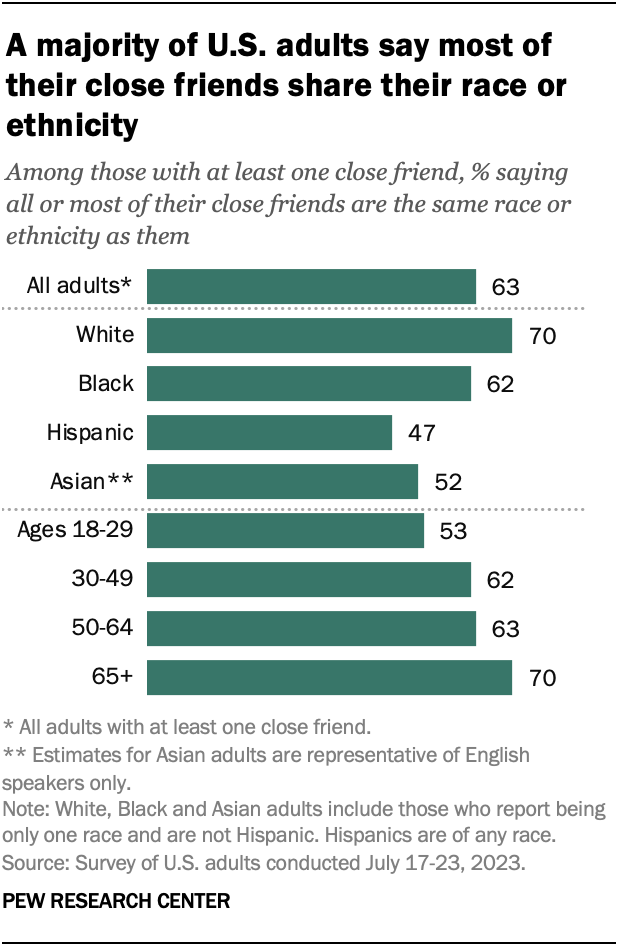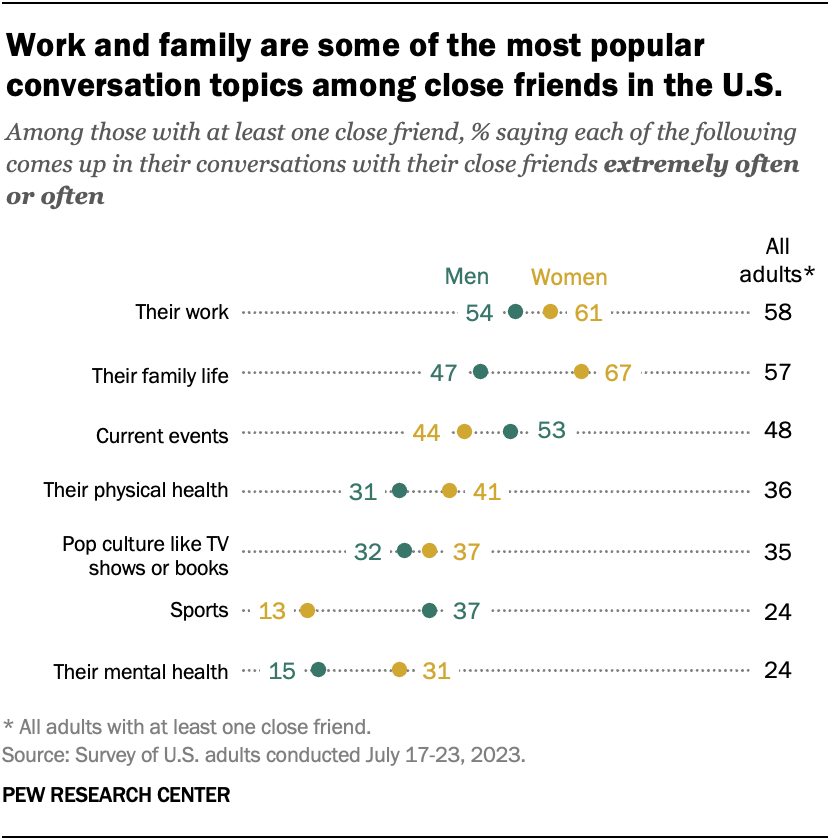How many close friends would you say you have? Ever wonder if that number is smaller or bigger than the average? Well, wonder no more, because new data from the Pew Research Center has you covered. They asked a panel of US adults to talk about their friendship groups, and some of the results may just surprise you.
For most of us, learning to build and navigate friendships is a key step in life. As kids and teens, the everyday dramas and politics within our peer groups often feel like the center of our universe – but what about when we’re all grown up?
According to research conducted earlier this year, more Americans (61 percent) think that having close friends is important for a fulfilling life than having a lot of money (24 percent), getting married (23 percent), or even having children (26 percent). Science tells us that humans are not alone when it comes to valuing friendships, and that a bad ending to a relationship can feel even worse when it was platonic than when it was romantic.
To dive a little deeper, analysts at the Pew Research Center conducted a survey specifically focused on how US adults are experiencing friendships today. They asked a nationally representative panel a series of questions, from how many close pals they have, to the demographic makeup of these groups, to the kinds of topics they like to talk about.
This is the part that might make for uncomfortable reading, depending on where on the scale you fall. A majority of adults, 53 percent, said that they have between one and four close friends, and 38 percent said they have at least five. At the other end of the spectrum, only 8 percent claimed to have no close friends at all.
The picture differs slightly according to age. Those aged 65 and older were more likely than their younger counterparts to have a larger social network, while under 50s were more likely to have between one and four close friends.
Men were also slightly more likely than women to have a friendship group of five or more, but the difference was pretty small (40 percent vs. 36 percent).
It’s often said that “opposites attract”; but just as research into romantic attraction is challenging the old adage, it also doesn’t appear to hold true for our platonic companions. Over 70 percent of women said that all their friends were the same gender as them, compared with 61 percent for the men. A majority of respondents also said their friends all share their race or ethnicity.

Having a partner in crime to do life with appears to be working for us – of those who reported having at least one good friend, 72 percent said they were completely or very satisfied with the friendship.
Perhaps part of the reason for that is having someone to talk through all of life’s stresses with. When asked about conversations with their close friends, most of the respondents picked out work and family life as topics that often come up, and over a third of under 30s also regularly talk to pals about their mental health.

Holding on to friendships is one thing, but making friends as an adult can be tricky. If you’re sitting here as part of the 8 percent and you’re not too happy about it, there are things you can do to increase your chances of meeting your new bestie. It’s not easy, but if these survey results are anything to go by, it can be totally worth it.
[H/T: NPR]




